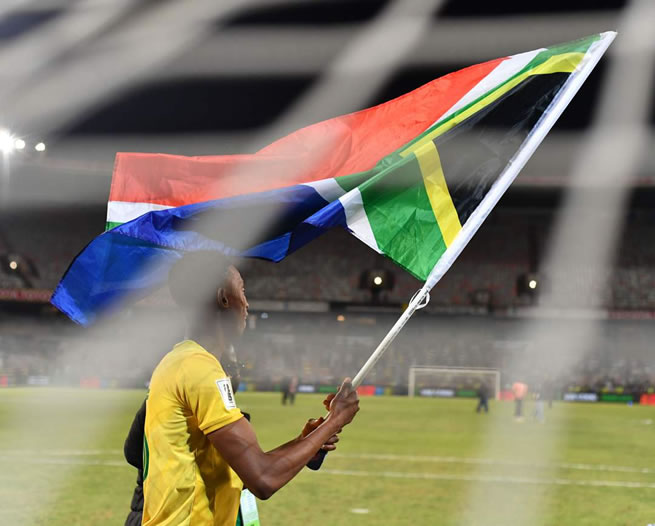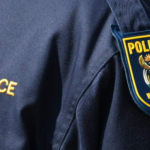Bafana Bafana Hold Nigeria as World Cup Qualification Wait Continues
Bafana Bafana’s dream of booking an early ticket to the 2026 FIFA World Cup will have to wait another month after they were held to a 1-1 draw by Nigeria at the Free State Stadium in Bloemfontein on Tuesday night.
South Africa went into the clash needing just a single point from their remaining fixtures to virtually secure qualification, and although they took the lead, they could not hold off a strong and physical Super Eagles side. The draw, however, leaves Hugo Broos’ men in firm control of their group with two matches left to play.
How the match unfolded
The encounter started brightly for Bafana, who pressed high and unsettled the Nigerians in the opening stages. Their dominance was rewarded midway through the first half when Mohau Nkota’s persistence forced a costly error from Nigeria’s captain William Troost-Ekong.
Attempting to clear a dangerous ball inside his own penalty area, the veteran defender sliced his clearance into the back of his own net, leaving his goalkeeper, Stanley Nwabali of Chippa United, stranded. The 25th-minute own goal gave Bafana a deserved advantage and sent the Bloemfontein crowd into raptures.
But instead of building on their momentum, South Africa failed to kill off the game. Nigeria grew into the contest, leaning on their physicality and experience to push the hosts back. Their equaliser came just before half-time, when left-back Calvin Bassey pounced in the 44th minute to restore parity.
The goal proved to be a turning point, as Nigeria began asserting themselves after the break. Bafana, though, stood firm, with both sides trading blows in an increasingly scrappy affair. Referee interventions became frequent, with five yellow cards brandished – three to Nigeria and two to South Africa – underlining the ill-tempered nature of the clash.
The bigger picture
For Broos and his technical team, the result was far from a disaster. South Africa remain on top of Group C with 17 points, well clear of the chasing pack. Nigeria, in second, are six points adrift on 11 points, although they still have fixtures against Lesotho and Benin to play.
The significance of the point was clear from the Bafana bench, as Broos and his assistants exchanged high fives at the final whistle. With two matches left, South Africa need just one point – either away to Zimbabwe on 6 October or at home to Rwanda on 13 October – to clinch an unassailable lead and seal their place at the tournament.
Should they succeed, it will mark Bafana’s first qualification for the global showpiece since 2002. They last appeared in a World Cup in 2010 when they qualified automatically as hosts.
Group C landscape
The result in Bloemfontein left the group finely poised for the chasing teams, but Bafana still hold all the cards. Nigeria’s fate now hangs in the balance. If Benin, who are also on 11 points, defeat Lesotho in their pending fixture, they will leapfrog Nigeria into second place.
For the rest of the group, the dream is over. Zimbabwe, Lesotho, and Rwanda are mathematically eliminated and can no longer qualify, meaning only South Africa, Nigeria, and Benin are in contention for the single automatic qualifying spot.
Under CAF’s format, only the nine group winners qualify directly for the World Cup. The four best runners-up across all groups will advance to a play-off, with the winner of that round joining an intercontinental tournament featuring six teams – one each from CAF, AFC, CONMEBOL, and OFC, plus two from Concacaf. Those six sides will fight for the final two spots at the World Cup.
African teams making their mark
South Africa had hoped to become the third African nation to secure qualification this week, following Morocco and Tunisia.
Morocco, Africa’s top-ranked team and 2022 World Cup semi-finalists, booked their spot in style with a 5-0 thrashing of Niger on Friday. On Monday, Tunisia followed suit with a dramatic 1-0 victory over Equatorial Guinea, clinched by a stoppage-time winner.
Broos’ men were desperate to join them, but the draw means the celebrations are on hold until October. Still, the path is clear: one more point and South Africa will return to football’s biggest stage after a 24-year absence.
Lessons from Bloemfontein
Despite not sealing qualification, the match in Bloemfontein underlined both Bafana’s progress and the areas still needing improvement. Their quick start showed energy and intent, but their inability to convert dominance into more goals proved costly. Nigeria’s equaliser exposed defensive lapses, and at times, the home side were bullied physically by their larger opponents.
Yet the resilience to hold on for a point against one of Africa’s traditional powerhouses should not be overlooked. The blend of youth and experience in Broos’ squad has given fans hope that this team can not only qualify but also compete credibly at the finals in 2026.
Where to next?
All eyes now turn to October, when South Africa face Zimbabwe away in Harare on 6 October before hosting Rwanda at home on 13 October.
With qualification within touching distance, the challenge for Bafana will be to maintain focus and avoid complacency. For the fans, it is another month of waiting – but also another month of dreaming about finally seeing their team on the world’s biggest stage again.
For now, Bafana Bafana remain top of their group, in control of their destiny, and just one step away from history.

Follow Us on Twitter











